The Thomas Jefferson Fashion Design program, as part of Design Philadelphia 2023, hosted a thought-provoking and illuminating event– our third-annual Fashion Face-Off industry panel discussions. This year’s event brought together some of the brightest minds in the fashion industry to discuss two pivotal themes: “AI Technology Takeover in Fashion” and “Sustainability, Environment, & Ethics: The Psychology of Consumer Habits.” The panels featured esteemed professionals from various facets of the fashion world, including representatives from companies such as QVC, URBN, Terrain, and The Big Favorite.
AI Technology Takeover in Fashion: Bridging Innovation and Tradition
The first panel, “AI Technology Takeover in Fashion,” was a captivating exploration of the integration of artificial intelligence in the fashion industry. It showcased how AI and machine learning are reshaping design, production, and retail. Panelists delved into the potential benefits and challenges of this technological evolution. “You can use the AI tool, at least image generated AI, to design without the limits of your hard skill,” explained Wei Peng, Associated Manager for 3D Technical Design and Innovation at URBN, “it allows you to imagine without limits—create without boundaries.” Kalista Safer, Merchandising Assistant for Terrain, provided real life examples of just that. “I didn’t come from a design background, but I still feel like I’m creative,” she explained. “Using platforms like MidJourney, I can talk into it and have generated AI come back and bring me real life images that I can share with my vendors. This way we can go forward with the production cycle without me having to go back and make sketches.”
The panelists emphasized that, while AI can enhance efficiency and personalization, it also raises concerns about job displacement and overreliance on algorithms. “I think a lot of the labor loss that I’m seeing that’s going to come early is in the technical patternmaking/ design areas,” said Jill Hamilton, adjunct Fashion Design professor at Thomas Jefferson University. However, she also emphasized that human input within the development cycle is still crucial. “When you’re using AI, its not going to do everything for you,” she continues, “you still have to do the development process. You have to do the color pitch, pick the yarns, send it to the factory, do the fitting… AI isn’t going to do that for you.” The discussion highlighted the need for a harmonious blend of human creativity and AI’s computational power to deliver the best outcomes for the industry.
Sustainability, Environment, & Ethics: The Psychology of Consumer Habits
The second panel, “Sustainability, Environment, & Ethics: The Psychology of Consumer Habits,” provided a platform for experts to examine the growing importance of eco-conscious practices in fashion. The panel discussed how consumer behavior and perceptions need to shift towards sustainable and ethical fashion choices. “Changing consumer perception around the value of our clothes is so important,” emphasized Eleanor Turner, CEO & Founder of The Big Favorite. “When I think about throwaway culture, especially for Gen Z, it really is experimentation. It’s an opportunity for you to experiment with your personal style and try new things and have fun. But at the same time, it’s a huge expense to the environment.”
Panelists agreed that mindsets need to shift in order for consumers to see the true value of their clothing. “I think the biggest opportunity I’m seeing in terms of consumer behavior and how they go about their purchasing decisions is really education,” says James Gaillard, Fashion & Trends Director for QVC. By educating consumers about the labor and materials involved in the making of their garments, individuals are able to see the value in their pieces. That also involves both consumers and industry brands coming to terms with overproduction and overconsumption. “Sustainability in relation to shopping isn’t always buying something new, at first,” explains Itohan Asemota, Apparel Product Development Specialist at Hani Studios. Consumers should ask themselves “do I already own something like this?” or ” can I borrow this from a friend?” before hitting the racks. “I also promote utilizing thrifting,” Itohan offered.
While the fashion industry is making steps in the right direction towards a more sustainable future, the work is far from over. “In order to move forward more sustainably, it really is an all-hands-on-deck approach between brands, the government, and consumer,” said panel moderator, Professor Carly Kusy. “Collectively its about shifting gears from fast to slow; being more conscious about our buying behaviors- how we buy, what we buy, why we buy, where it’s made, who made it—this is what we have to be talking about.”
Fashion Face-Off 2023 revealed the dynamic and multifaceted nature of the fashion industry in the modern era. The event encapsulated the ongoing dialogue surrounding the fusion of technology and tradition, while also emphasizing the vital movement toward sustainability and ethics in fashion. As a result, it underscored the crucial role of events like these in shaping the industry’s future, offering a platform for fruitful discussions, innovation, and a vision for a more conscious and creative fashion landscape.
A special thank you to all of our industry guests, faculty, and alumni who participated in this event, including:
- Itohan Asemota- Apparel Product Development Specialist; Hani Studio
- Eleanor Turner- Founder & CEO; The Big Favorite
- James Gaillard- Fashion, Lifestlye, & Trend Director; QVC
- Wei Peng- Associate Manager for 3D Technical Design & Innovation; URBN
- Kalista Safer- Merchandising Assistant; Terrain
- Jill Hamilton- Fashion Design Adjunct Faculty; Thomas Jefferson University
- Jay Rodriguez (’20)- @TheQueerTailor
- Terrence Bridges (’23)- @TRTL.collective


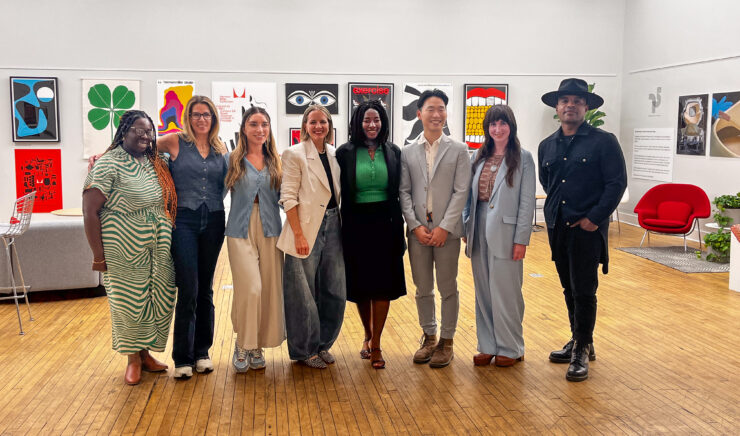
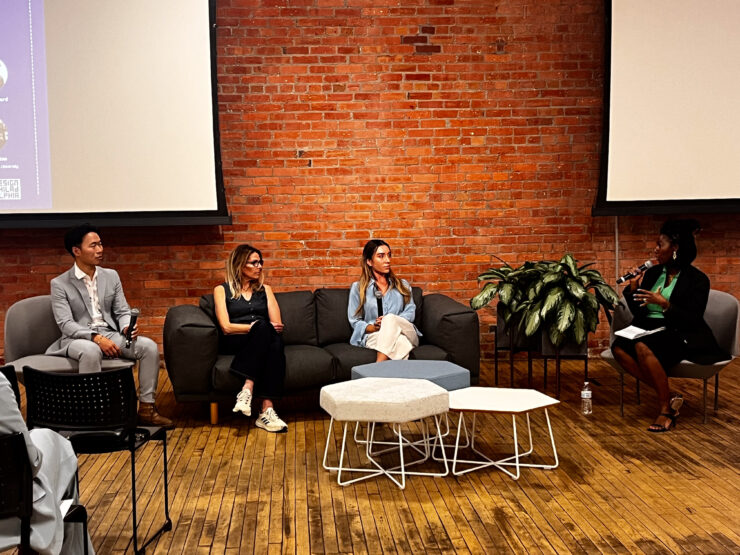
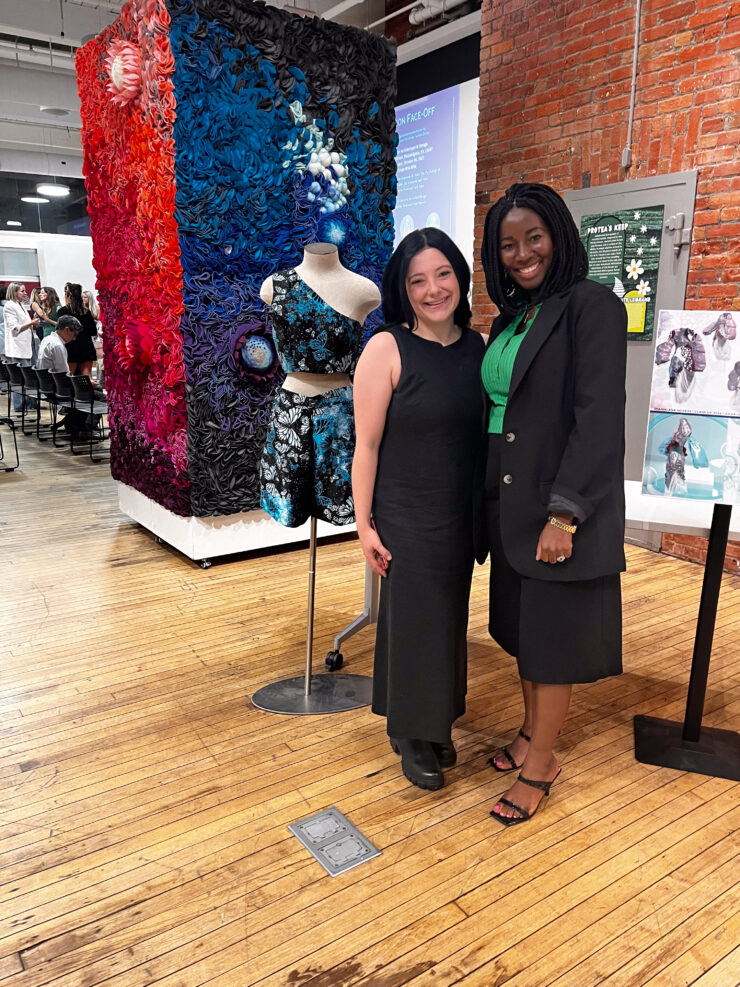
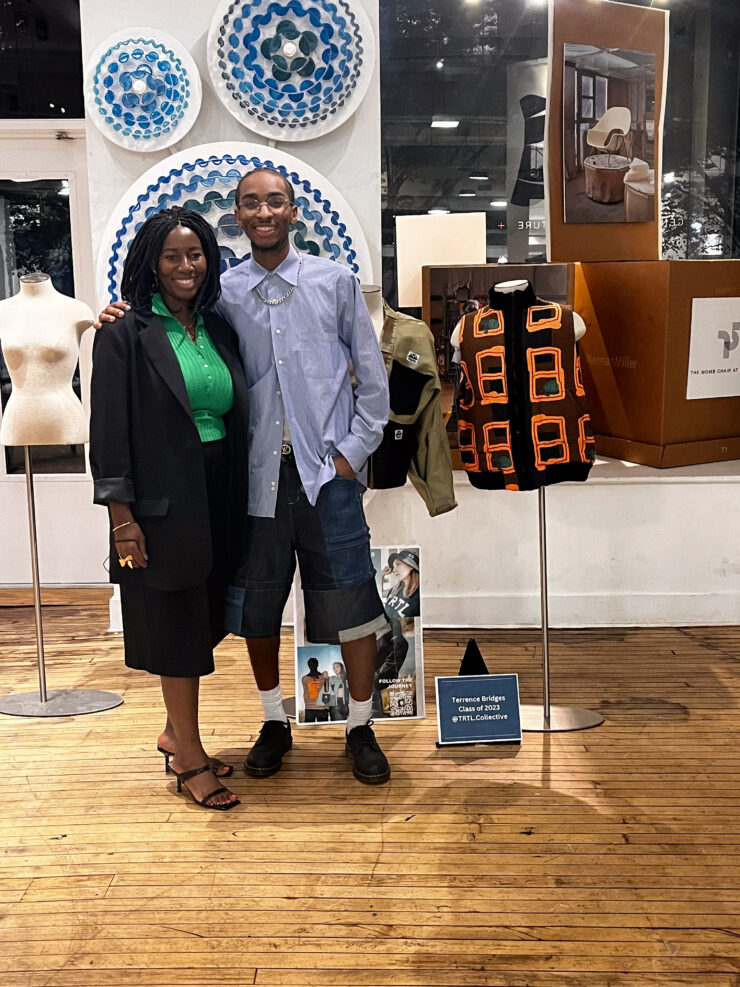
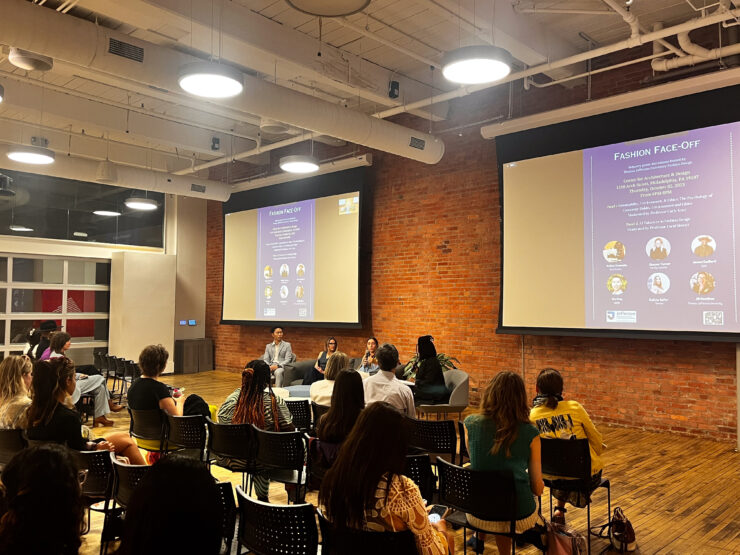


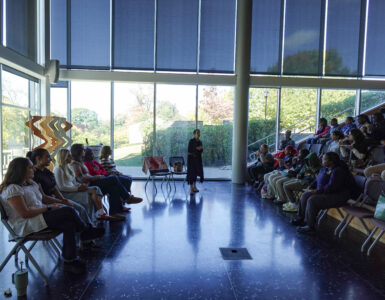

Add comment